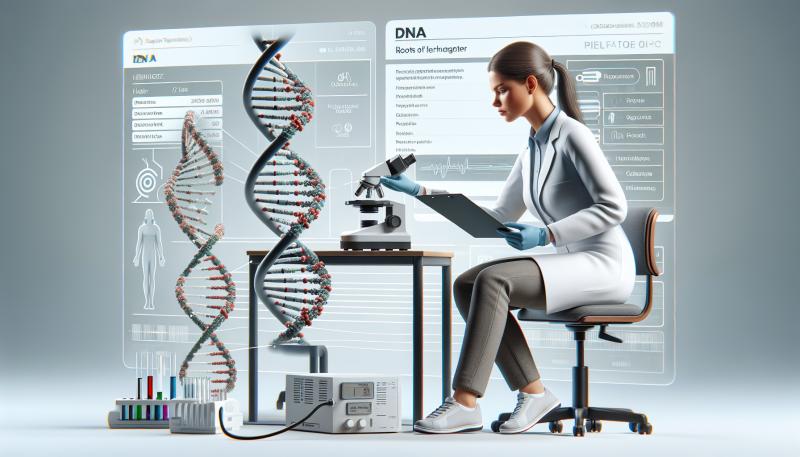
Exploring the Benefits of DNA Testing for Adopted Individuals
DNA testing has revolutionized the way we approach personal health, genealogy, and familial relationships. For adopted individuals, this scientific advancement presents unique opportunities to uncover aspects of their identity that may have previously remained elusive. IMS Screening Solutions, known for its comprehensive diagnostic offerings, provides accessible DNA testing that can empower adoptees to enhance their personal and family narratives. In this article, we will explore the numerous benefits DNA testing offers for those who have been adopted, touching on areas such as biological connections, health insights, and personal identity.
Understanding Biological Connections
One of the most compelling reasons adopted individuals seek DNA testing is the possibility of discovering biological relatives. Many adoptees experience a natural curiosity about their biological parents and extended family. DNA testing can act as a bridge over these knowledge gaps:
- Connecting with Biological Parents: By comparing genetic markers, adoptees can identify potential matches with their biological parents or close relatives. This connection can provide adoptive individuals with a sense of closure or completeness.
- Learning About Siblings: DNA testing can reveal unknown siblings, offering the chance to build new familial relationships and share life stories and experiences.
- Building Extended Family Trees: With DNA results, adoptees can expand their family tree, connecting with distant relatives and exploring heritage and lineage in ways previously unimaginable.
Health Insights and Genetic Information
In addition to exploring family connections, DNA testing offers significant health advantages. Understanding genetic predispositions can allow adopted individuals to take proactive approaches to their health:
- Identifying Genetic Disorders: DNA testing can screen for hereditary conditions and potential genetic disorders that may impact an individual’s health. Early awareness can guide preventive measures or lifestyle changes.
- Personalized Health Care: With comprehensive genetic information, medical professionals can tailor healthcare strategies specifically suited to an individual's genetic makeup.
- Family Planning: For those considering having children, understanding genetic risks is crucial in making informed family planning decisions.
Personal Identity and Cultural Heritage
Beyond relationships and health, DNA testing provides a deeper understanding of personal identity and cultural background, which is especially significant for adoptees exploring their origins:
- Cultural Understanding: DNA testing can trace an adoptee's ethnicity and cultural history. This understanding can lead to a deeper sense of belonging and cultural pride.
- Historical Knowledge: The ancestral journey provided by DNA testing can enrich an individual's knowledge about their family's past, including migration patterns and historical contexts.
- Emotional Closure: For many adoptees, understanding their roots and narratives can provide emotional closure and help them integrate their adoptive and biological identities.
Supportive Resources and Communities
Learning about genetic and ancestral information is just the beginning. For adopted individuals, connecting with communities and resources can help navigate these discoveries:
- Peer Support Groups: Joining networks of adoptees with similar experiences can provide emotional support and shared understanding.
- Holistic Counseling Services: Professional counseling can assist in processing newly uncovered information and in fostering mental well-being.
- Educational Workshops: Participation in workshops aimed at understanding DNA results and genetic information can empower adoptees with additional knowledge and preparedness.
Privacy Considerations and Ethical Implications
While the benefits of DNA testing are significant, it’s also crucial to address privacy and ethical considerations:
- Data Privacy: Ensure that the DNA testing company follows rigorous data protection policies, safeguarding personal genetic information.
- Ethical Use of Information: Keep informed about how genetic data might be used beyond the immediate scope of family and health insights, including research and third-party sharing.
- Informed Consent: Understand the terms and conditions of the DNA testing process to make informed decisions about participation.
Conclusion: Empowering Adoptees through DNA Testing
DNA testing offers adopted individuals an unprecedented opportunity to answer lingering questions about their heritage and genetic makeup. By connecting them to biological relatives, providing health insights, and enhancing their understanding of personal identity, DNA testing can be a transformative tool. IMS Screening Solutions stands at the fore in offering these crucial services, helping adoptees take proactive steps toward embracing their complete identity.
Whether seeking familial connections or assessing health risks, adopted individuals can derive significant benefit from exploring their DNA. By taking the necessary steps to ensure ethical and careful handling of genetic information, adoptees can confidently explore the expanse of knowledge DNA testing opens, shaping a fuller, more comprehensive narrative of who they are and where they come from.
